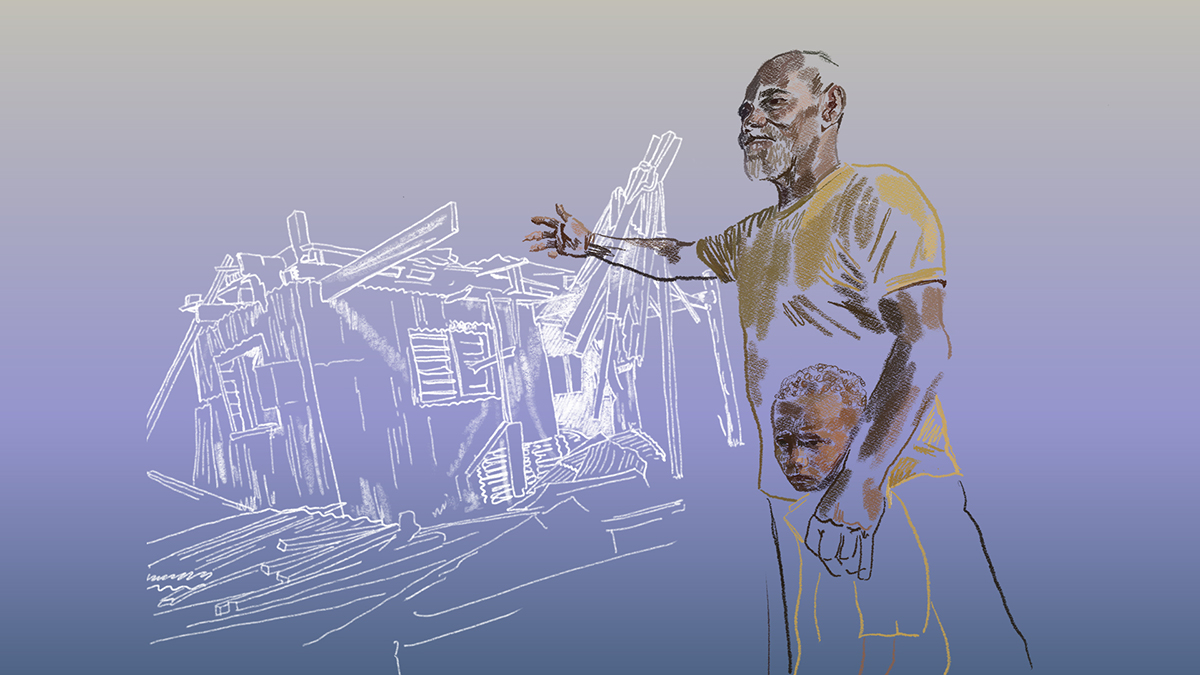
The Climate Mobility Hub is an interactive site showcasing the stories of people affected by disasters and climate change, alongside facts and policy solutions to this global challenge.
What would you do if your home was threatened by climate change? That’s the question explored in a new digital resource developed by the Kaldor Centre for International Refugee Law at UNSW Sydney.
The Climate Mobility Hub shares vital information about human movement in the context of disasters and climate change. A resource for students, journalists and anyone curious about the potential for ‘climate refugees’, the hub delivers evidence-based solutions and amplifies the voices of people at the front line.
It builds on ground-breaking research and policy work at the Kaldor Centre to share key facts, human stories and pathways to greater understanding of this important issue.
The Kaldor Centre’s Executive Manager Frances Voon said the hub was developed to promote understanding of the human impact of climate mobility and share the Centre’s world-leading research.
“The Kaldor Centre is at the forefront of global work on the impact of climate change on human displacement and relocation. The Climate Mobility Hub is helping us share our work with people in Australia and around the world in a way that is accessible and engaging,” she said.
“Our staff are contributing to key international policy processes, and our work with governments and communities is having a direct impact on how we plan for and respond to the consequences of climate change. The Climate Mobility Hub will help people understand the human impact of the challenge we’re facing and what can be done to address it.
Scientia Professor Jane McAdam AO, Director of the Kaldor Centre, has pioneered legal scholarship on climate mobility over the past two decades.
“The Climate Mobility Hub distils our academic research into bite-sized, accessible pieces for the general public. By creatively presenting our work in a new and engaging way, the Hub reaches new and diverse audiences and provides a go-to resource for the many inquiries we receive from media, students and policymakers,” she said.
Through videos, interviews, photos and facts, the hub explores what we know about climate mobility, its causes, the actions we can take right now to address the human impacts, and possible solutions to support people who are directly affected. Importantly, the hub also features the stories of people who are experiencing the impact of disasters and climate mobility, and offers the opportunity to share videos, photos and stories.
Decisions now affect communities and lives in the future
“Climate mobility” is an umbrella term that encompasses human displacement, migration, evacuation and planned relocation in response to climate change, as well as those who stay in place either by choice or necessity.
Rising sea levels, frequent and severe storms, fires, flooding, drought and other disasters are affecting communities around the world. The impacts of climate change are forcing people to move away from their homes, threatening livelihoods, security and wellbeing.
The Pacific and East Asia regions have reported the highest number of disaster displacements globally, according to an Internal Displacement Monitoring Centre report released in May 2024. There were more that 225 million internal displacements in the Asia-Pacific in the decade to 2021. In recent years, more people have been displaced within their own country because of climate impacts than by conflict and persecution.
The Kaldor Centre’s research explores and advocates for ways we can protect the rights and dignity of the people who are directly affected by climate mobility. This work is informed by fieldwork in the Pacific, South Asia and Africa to capture the views of the communities whose homes and livelihoods are already being impacted.
Professor McAdam said the Climate Mobility Hub was philanthropically supported by the Knights Family Jabula Foundation.
“The Kaldor Centre has pioneered work in climate mobility, and our work is already having an impact. Our strategic advice is sought by global leaders – including the Biden administration, the Pacific Islands Forum and the UN Refugee Agency – because this is an urgent challenge the world must rise to meet,” she said.
“The choices we make now, through local, national and international policy decisions and actions, will have a direct impact on communities and people’s lives around the world. Through the Climate Mobility Hub, we’re hoping to raise awareness and inspire action.”
Watch this video introducing the Kaldor Centre Climate Mobility Hub.
Main image credit: Cecilia Humphries
- Log in to post comments
